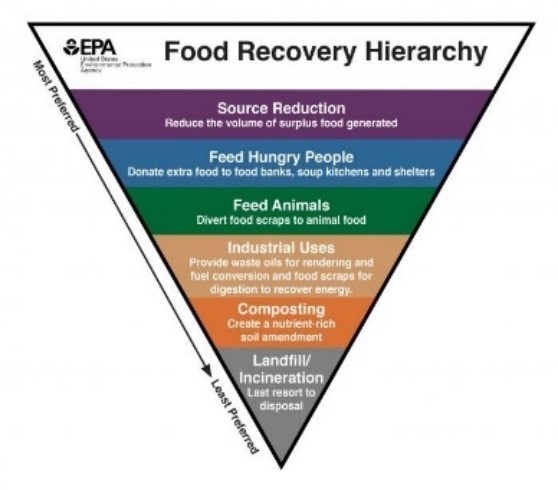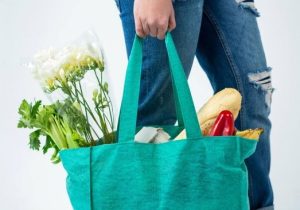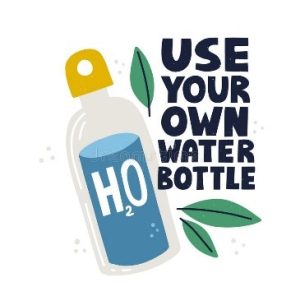Public Safety and Community Resources Department
Contact Info
Julie Haas-Wajdowicz
Environmental Resources Coordinator
Environmental Resources Line
Related Items
Environmental Resources
SB1383 Implementation
California State Senate Bill (SB) 1383 was adopted in September 2016 and went into effect in 2022. It establishes 2 statewide targets to reduce emissions of short-lived climate pollutants by reducing the amount of organic waste disposed of in landfills.
The 2 statewide targets are:
- Reduce organic waste sent to landfills by 75% by 2025.
- Rescue at least 20% of currently disposed surplus food to donate to Californians in need by 2025.
Successful implementation at the local level will take effort on all parts in the City of Antioch and the community. Please visit this page for program updates and information.
SB 1383 primarily aims to achieve a sharp reduction in the generation of Methane & other harmful greenhouse gases that result from the decomposition of organic materials disposed of in landfills. Organic materials are all materials that come from plants and some materials that come from animals including all food waste, disposable paper products and yard trimmings. The State of California is mandating these reductions to address climate change impacts such as extreme heat, drought, and forest fires.
Program Overview:
Per state regulations, the City of Antioch must:
- Provide organic waste collection to all residents and businesses (Business program is available now, Residential starts July 1, 2023).
- Ensure that a food recovery program is in place for every food generating business that meets the SB 1383 Tier 1 or Tier 2 criteria. Click here for more information on food recovery requirements and to determine if your business is a Tier 1 or 2 food generating business.
- Conduct outreach and education to all affected/relevant parties, waste generators, haulers, facilities, edible food recovery organizations, and City departments.
- Conduct Capacity Planning: Evaluate the City’s readiness to implement SB 1383
- Procure recycled organic waste products like compost, mulch, and renewable natural gas (RNG)
- Inspect and enforce compliance with SB 1383. View the Antioch Municipal Code update that incorporates all the requirements of SB 1383 into City law.
- Maintain accurate and timely records of SB 1383 compliance
Keeping Organics out of Landfills:
Resource Recovery is when you recover a disposed material and make new use of it instead of sending it to the landfill. Senate Bill 1383 mandates all Californians to do this with all organic material they dispose of, so that it can be used to create compost or renewable energy instead of wasting away in the landfill.
Organic material is all materials that come from living things such as plants and all inedible scraps and leftovers from food, yard and landscaping trimmings and used paper products (e.g. paper plates, cups, take-out containers, pizza boxes, napkins, towels & tissues).
Recovery of Organics Fights Climate Change & Protects Public Health:
Organic materials make up about half of what Californians send to landfills each year, imagine recovering all that material instead! When organic materials break down (decompose) in the landfill, they produce Greenhouse Gases like Methane, that contribute to climate change and pollute the air we breathe. If these organic materials get composted instead of landfilled, they decompose without producing the most harmful Greenhouse Gases and provide many additional benefits to our environment and our health! Learn more about the benefits of composting
Mandatory 3-Sort of Waste (organics, recycling, trash):
In order to effectively recover organic materials, we all need to do our part in correctly sorting our waste into three different streams: organics (compost), recycling and trash (landfill). Every resident and business in the City of Antioch is required to do this according to SB 1383.
Take a look at Republic Services 3-Sort Guides for guidance on what materials go into which container:
Landscaper requirements: If you have a landscaper, you must verify that they are either delivering all their landscaping debris to a compost facility or using your on-site organics cart.
Consistent Container Colors: Eventually all Republic Services containers and those used internally by businesses will need to be consistently color-coded as follows:
- Green for Organics containers
- Blue for Recycling containers
- Black/Grey for Trash containers
Businesses are required to provide correctly color-coded receptacles to their employees and customers.
For color coded collection containers provided by Republic Services to businesses, such as dumpsters and carts, this swap out will be happening once the franchise amendment is completed. For residential customers, this swap out will occur as carts are replaced or repaired. In most cases, carts will be correctly color coded on their lids, therefore residents should use the color of the lid to determine the correct container to put their waste in.
Organics Collection Monitoring: The City of Antioch’s designated monitoring entity will regularly inspect waste bins throughout the City for correct sorting and contamination (incorrect sorting or lack thereof) and will provide feedback to residents and businesses with excessive contamination.
Where to Report Organics Contamination:
Have you noticed a local Antioch business or facility not providing organics service to their customers and/or not properly sorting their waste? Have you noticed a neighbor who has excessive contamination in their waste bins? We can provide them with educational support and signage.
On May 24, 2022 the City Council approved the program amendment option below in order to add organics to our current garbage services and provide implementation and monitoring assistance related to State law SB1383. This program amendment has changed the green cart from yard waste only to all organics (adding food waste and food soiled paper products) for residents of Antioch. The program and rate increase went into effect in July 2023. Specifically, residential customers received a rate increase in two parts, a 7.6% rate increase in July 2023 and another 7.6% rate increase in July 2024. Commercial customers received a 7.7% increase in July 2023. The green (organics) carts were serviced every two weeks for the first year of the residential organics program. As of July 2024, they are serviced every week for Antioch residents.
| Program Plan | Residential % increase | Commercial % increase |
| Extension of City contract with Republic Services through 2028 with weekly residential Organics collection and SB1383 assistance | 15.2* | 7.7* |
Organics Collection & SB 1383 Requirements:
Residents: Beginning July 1, 2023, residents can now place food waste and food soiled paper in their green, organics cart. The first 7.6% rate increase for the residential organics program is necessary to cover the additional transportation and processing cost of directing the organic material to the compos facility. The second 7.6% rate increase is necessary for increasing the frequency of collection from every two weeks to every week, which started in July 2024.
Keeping organic material out of our landfills is an excellent way to reduce greenhouse gas emissions and combat climate change.
Please consider the following tips to maximize the diversion of your organic waste:
- Store your carts out of direct sunlight.
- When dumping food waste in your green cart, cover it with some yard waste or used paper towels/tissues. This will help keep flies and other pests out of the food.
- Wait to do big fridge clean-outs until the night before collection so that material is not sitting outside in your cart for long periods of time.
- If you have the space, keep your food waste pail in the refrigerator until organics cart service day.
Multifamily Complexes: The property owner/manager must:
- Annually educate tenants and employees effectively on how to properly sort organic waste into the correct bins
- Provide information to effectively educate new tenants within 14 days of new tenant’s occupation of the premises
Businesses: The City of Antioch and our waste hauler, Republic Services, already provide organics collection to all businesses in the City. All businesses are required to either participate in organics collection service through Republic Services or self-haul to a composting facility/program.
- Businesses must sort all their organic waste into the correct containers
- Businesses must provide clearly marked & correctly color-coded collection containers for organic waste together with trash and recycling containers in all areas where people generate waste.
- All businesses must provide effective education to employees, contractors, tenants & customers on how to correctly sort organic waste into the correct container.
Correct & Consistent Container Colors: Business must follow green for Organics containers, blue for Recycling containers, black/grey for Trash containers for all new waste receptacles purchased for your business. Businesses are required to provide correctly color-coded receptacles to their employees and customers everywhere that waste is being generated at their business.
For more information for both residents and businesses, visit the CalRecycle
-
Feeding Hungry People While Reducing Food Waste
The State of California estimates that half of all material currently going to landfills is organic material, much of which is edible food. Meanwhile, 1 out of every 6 people in Contra Costa County is food insecure, struggling to find their next meal.

First, we reduce the amount of food we have leftover. Second, we donate our extra food to someone in need. Third, we compost it. Landfilling is always the last resort. The amount of resources and labor that go into growing and transporting food to your table, make it worth the effort to make sure it gets eaten by someone.
Food Recovery Programs for Certain Businesses:
All Food Generating Businesses that fall under Tier 1 or Tier 2 criteria, must set up a food recovery program that meets SB 1383 & Antioch Municipal Code § 6-3 requirements by the specified date. Tier 1 Food Generators should already have programs in place as of January 1st, 2022. Tier 2 Food Generators should have programs in place by January 1st, 2024.
Every Tier 1 and Tier 2 business must save the maximum amount of edible food possible from going to waste and donate it to a food recovery organization that gives it to people experiencing food insecurity.
To determine if your business is a Tier 1 or Tier 2 Food Generator according to State and City law, see the criteria outlined below.
Tier 1 CriteriaTier 1 Criteria:
- Supermarkets: A full-line, self-service retail store with gross annual sales of two million dollars ($2,000,000) or more and which sells a line of food products.
- Grocery Stores: Those with a total facility size equal to or larger than 10,000 square feet.
- Food Service Providers: A facility that primarily provides food services to institutional, governmental, industrial, or commercial locations based on contractual agreements with these types of organizations.
- Food Distributors: A business that distributes food to entities including, but not limited to, supermarkets and grocery stores.
- Wholesale Food Vendors: A business engaged in the wholesale distribution of food, where food is received, stored, prepared, and shipped for distribution to another entity.
Food Recovery Requirements for Tier 1 & 2 Businesses:
- Food generating businesses must arrange to recover and donate the maximum amount of edible food that would otherwise go in the organics/compost bin but not in the trash bin.
- Food generators shall not intentionally spoil edible food that is capable of being recovered for donation.
- Food generators must have a contract or written agreement with a food recovery organization or service that establishes if donated food is either collected by or delivered to the food recovery organization.
- Food generators must have copies of all their contracts or written agreements to provide to the City of Antioch’s designated enforcement entity upon request.
- Food generators must keep records of the following:
- A list of all the food recovery organizations or services that they have a contract or written agreement with
- A record of the following information for each of those food recovery organizations or services:
- Name, address and contact information
- The types of food that are donated
- The established frequency that food will be collected by or delivered to the food recovery organization
- The quantity of food, measured in pounds, that is recovered every month
- Food generators must allow the City of Antioch’s designated enforcement entity to access the premises and review records.
Please refer to the CalRecycle website
for more information on SB 1383 food recovery requirements for food generators.
Tier 2 CriteriaTier 2 Criteria:
- Restaurants: Those that seat 250 or more people or those with a total facility size of 5,000 square feet or more.
- Hotels: those with an on-site food facility and 200 or more rooms.
- Health Facilities: Those with an on-site food facility and 100 or more beds.
- Large Venues: A permanent venue facility that seats or serves an average of 2,000 people or more in the facility per day of operation.
- Large Events: An event that charges an admission price or is operated by a local agency and serves an average of 2,000 people or more per day of operation. Some examples include, but are not limited to, a flea market, festival or sporting event located at a public, non-profit or private park, parking lot, golf course or street system.
- State Agencies: Those with a cafeteria with 250 or more seats or a total cafeteria facility size of 5,000 square feet or greater.
- Local Education Agencies: A school district, charter school or county office of education that is not subject to the control of city or county regulations, with an on-site food facility.
Food Recovery Requirements for Tier 1 & 2 Businesses:
- Food generating businesses must arrange to recover and donate the maximum amount of edible food that would otherwise go in the organics/compost bin but not in the trash bin.
- Food generators shall not intentionally spoil edible food that is capable of being recovered for donation.
- Food generators must have a contract or written agreement with a food recovery organization or service that establishes if donated food is either collected by or delivered to the food recovery organization.
- Food generators must have copies of all their contracts or written agreements to provide to the City of Antioch’s designated enforcement entity upon request.
- Food generators must keep records of the following:
- A list of all the food recovery organizations or services that they have a contract or written agreement with
- A record of the following information for each of those food recovery organizations or services:
- Name, address and contact information
- The types of food that are donated
- The established frequency that food will be collected by or delivered to the food recovery organization
- The quantity of food, measured in pounds, that is recovered every month
- Food generators must allow the City of Antioch’s designated enforcement entity to access the premises and review records.
Please refer to the CalRecycle website
for more information on SB 1383 food recovery requirements for food generators.
Start Donating Today!
For Tier 1 and Tier 2 food generating businesses, a list of food recovery organizations/services in Antioch and Contra Costa County who are able to receive and collect surplus edible food from your business.
Contact an organization of your choice so your business can start donating food today!
If you are unsure of how to create your written agreement/contract with the food recovery organization you are donating to, use the following Template
Safe Practices for Food Recovery & Donation:
Contra Costa Environmental Health provides resources to help businesses safely donate edible food, like this helpful brochure and this handy flyer.
Legal Protection:
Both Federal and State laws provide liability protections for good faith food donors (the Federal Good Samaritan Act & California Good Samaritan Food Donation Act). Nothing in the SB 1383 law shall be construed to limit or conflict with the protections provided by the California Good Samaritan Food Donation Act of 2017, the Federal Good Samaritan Act, or share table and school food donation guidance pursuant to Senate Bill 557 of 2017.
Assistance: City of Antioch Environmental Resources staff is available to help answer questions and provide resources to support your business in developing a successful and compliant food recovery program. Please click HERE to contact us for assistance.
 Procurement & Use of Recycled Organic Products
Procurement & Use of Recycled Organic Products
SB 1383 requires all cities and counties in California, including the City of Antioch, to annually procure (purchase) a minimum quantity of organic waste products to strengthen California’s green economy and create new jobs. Yard trimmings, food scraps, and other types of organic waste can be recycled into new products like compost, mulch, biofuel & electricity. In 2022, the City of Antioch purchased and installed 1,500 cubic yards of recycled mulch and 72.36 tons of recycled compost.
Recovered organic waste products can:
- Benefit local communities and spaces
- Improve soil and air quality
- Support local environmental initiatives, such as Climate Action Plans
Compost Giveaways: This means free compost for Antioch residents, which is high quality fertilizer for your garden made from your recycled food scraps! Compost giveaways happen annually in the Spring and are promoted via NextDoor and by Republic Services.
 School Community Garden Projects: Currently, schools & non-profits can request free compost from Republic Services for their community gardens & other gardening projects. Contact Republic Services Recycling Coordinator RC Ferris to request free compost for this purpose. Email rferris@republicservices.com or call (925) 671-5853
School Community Garden Projects: Currently, schools & non-profits can request free compost from Republic Services for their community gardens & other gardening projects. Contact Republic Services Recycling Coordinator RC Ferris to request free compost for this purpose. Email rferris@republicservices.com or call (925) 671-5853
Environmentally Conscious Consumption: As an environmentally conscious consumer, buying recycled post-consumer content products such as recycled paper products (toilet paper, tissues, paper towels & printing paper) for your household is a must do. Whenever you are shopping you should give preference to recycled content and the ability to recycle the item when you are done with it.
The take-home message for being an environmentally conscious consumer is to consume less whenever possible to reduce the chance of creating waste in the first place! Thinking ahead about how to only take or make what you need and avoid being wasteful is a great strategy. Another good thing to remember is that reuse is always better than single use! In nearly all aspects of life, using reusable products is always the sustainable option! Try to avoid using single use products unless it is the only option. It is especially important to avoid single-use plastic products whenever you can (plastic bags, food ware, take-out containers, etc.). As a society we use too much plastic and it is harmful to human, animal and environmental health. To learn more about the problems with plastic, click here.

To learn more about how to reuse more and waste less, click HERE
Another great resource is the Cleaner Contra Costa Challenge, an online platform that provides resources and guides you on how to live more sustainably and save money while doing it! Check out the Cleaner CC Challenge
To learn more about SB 1383 procurement requirements and benefits, visit the CalRecycle website
Frequently Asked Questions (FAQs):
As of July 1st 2023, Antioch residents are required to put all food waste, food soiled paper products and yard waste into their green (organics) cart to comply with the organics residential program mandated by City and State law. The garbage rate was increased for the organics residential program in two parts, a 7.6% rate increase in July 2023 and another 7.6% rate increase in July 2024. As of July 2024, the green (organics) cart is serviced every week for Antioch residents.
Organics collection is currently available at no charge through Republic Services. You can contact RC Ferris at rferris@republicservices.com or (925) 671-5853.
Yes! Through our Franchised Hauler, Republic Services, you can get flyers and other education/outreach materials. Contact RC Ferris at rferris@republicservices.com or (925) 671-5853.

